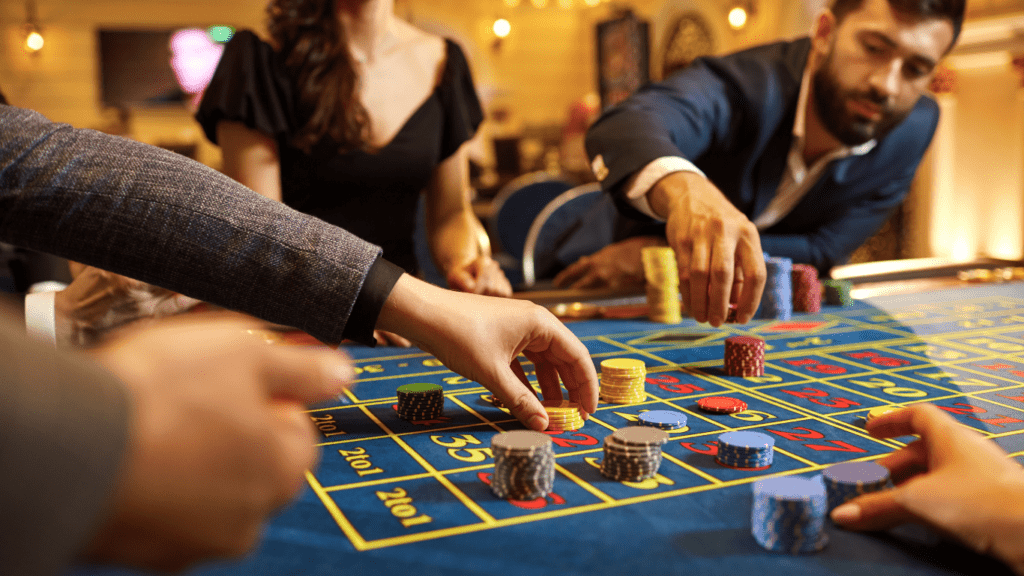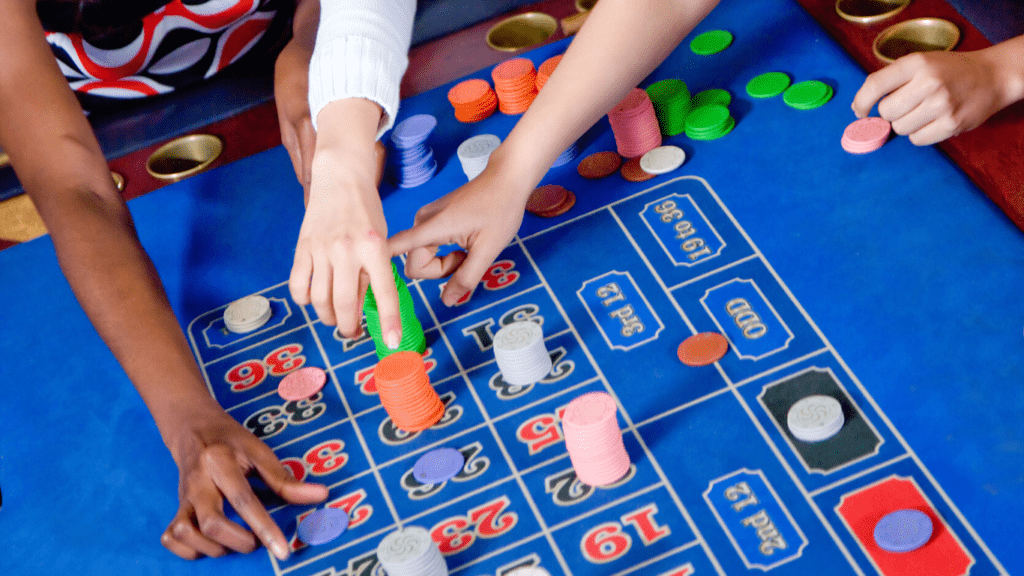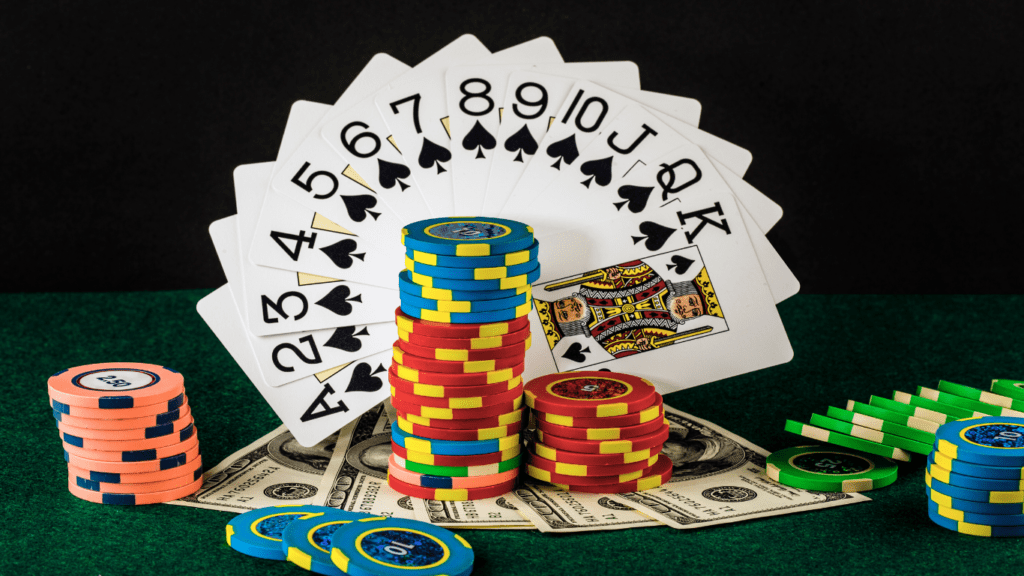Understanding Emotional Control in Gambling
Emotional control shapes gambling behavior by influencing decision-making processes. Recognizing how emotions impact choices can help reduce impulsive decisions and promote responsible gambling practices.
The Psychology Behind Gambling Decisions
Emotions play a significant role in the psychology of gambling decisions. Dopamine levels rise during wins, creating feelings of pleasure that encourage continued play. Conversely, losing triggers frustration or anxiety, motivating players to chase losses in an attempt to recover. Cognitive biases like the gambler’s fallacy—believing a streak of losses increases chances of a win—intensify poor decision-making. Understanding these psychological mechanisms enables better emotional regulation while gambling.
Common Emotional Triggers in Gambling
- Several emotional triggers commonly affect gamblers’ decision-making.
- Losses often provoke frustration, leading to impulsive betting to recoup lost funds.
- Wins, while positive, can fuel overconfidence, encouraging riskier wagers.
- Anxiety, stemming from tight finances or external pressures, can impair judgment and result in rushed bets.
- Boredom or a desire for excitement may push individuals to gamble excessively or irresponsibly.
- Identifying these triggers helps maintain control and reduces the risk of emotional interference during gambling.
The Dangers of Impulse Bets
Impulse bets often stem from emotional reactions, undermining logical decision-making. These unplanned wagers disrupt gambling strategies and amplify risks by prioritizing immediate gratification over long-term outcomes.
How Impulse Bets Affect Decision-Making
Impulse bets distort rational thinking, driven by emotions rather than calculated choices. Emotional reactions—like frustration after a loss or excitement following a win—override carefully set limits. This leads to decisions grounded in fleeting feelings instead of data or strategy. For example, betting larger amounts after a win due to overconfidence or doubling down after a loss to recover can diminish control. Over time, repeated impulsivity can erode discipline, making responsible gambling nearly impossible.
Real-Life Consequences of Impulsive Gambling
Impulsive gambling often leads to:
- financial distress
- strained relationships
- mental health challenges
Uncontrolled wagers can result in empty bank accounts and mounting debts when financial resources are spent recklessly. Social consequences also emerge, as frequent emotional betting may prompt conflicts with family or friends who disapprove of erratic behavior. Mental strain intensifies when impulsive losses pile up, leading to guilt, regret, and anxiety. High-profile cases of gamblers losing their life savings from chasing losses underscore the severity of these outcomes.
Chasing Losses: A Costly Pitfall

Chasing losses occurs when gamblers attempt to recover money lost by placing additional bets, often leading to larger financial and emotional setbacks. This behavior disrupts rational decision-making, driven by desperation and the hope of recouping prior losses.
Why Gamblers Chase Losses
Gamblers chase losses due to emotional responses triggered by disappointment and anxiety from losing money. The urge to “win it back” creates a cycle of increased risk-taking, fueled by irrational beliefs like the gambler’s fallacy—the notion that a win is “due” after successive losses. Emotional triggers, such as panic or frustration, override logical thinking, making players feel compelled to place additional bets in hopes of reversing their fortune. Cognitive biases and heightened stress levels worsen the situation, leading to repeated poor decisions.
For example, after losing $500 in slot machines, a player might convince themselves that continuing to bet ensures regaining their money, even when the odds remain unchanged. Emotional override pressures gamblers to disregard their initial strategies, denying them a chance to reflect and reassess their actions.
The Financial and Emotional Toll of Chasing Losses
Chasing losses not only depletes finances but also leads to severe emotional consequences. Financially, repeated betting increases the risk of accruing debt, with gamblers often using credit cards, loans, or savings to fund continued wagers. These actions compound financial instability, leaving individuals in dire situations where necessities like rent or bills may become unaffordable.
The emotional effects are equally damaging, manifesting as guilt, regret, and heightened stress. As losses grow, feelings of helplessness and anger intensify, creating a feedback loop that harms mental health and exacerbates reckless gambling. For instance, someone who loses their monthly income attempting to recover previous losses may experience shame and anxiety, straining relationships with family or friends. Prolonged emotional distress can worsen, leading to depression or isolation.
Statistics highlight this issue’s prevalence. According to the National Council on Problem Gambling, 20% of problem gamblers have filed for bankruptcy directly tied to gambling losses. This illustrates the devastating consequences of unchecked loss-chasing behavior. Recognizing and addressing the impulse to chase losses is essential for long-term financial and emotional well-being.
Strategies for Maintaining Emotional Control
Effective emotional control ensures responsible gambling and prevents impulsive decisions. Adopting practical strategies helps maintain focus and supports balanced choices while gaming.
Setting Limits and Sticking to Them
Establishing limits on time and money creates clear boundaries for gambling activities. I prioritize setting daily or session-based budgets, ensuring I only wager what I can afford to lose. Time limits help avoid prolonged play that may increase emotional vulnerability. When I reach these thresholds, I commit to stopping, regardless of wins or losses.
Tracking expenditures allows me to monitor patterns and avoid overspending. By pre-setting loss limits and betting caps within gambling platforms, I can automate self-regulation and minimize the temptation of impulsive bets.
Recognizing Emotional Red Flags
Identifying emotional triggers reduces the risk of irrational decisions. I stay alert to signs of frustration, overconfidence, or anxiety, as these often precede impulsive actions. For example, I might notice agitation after consecutive losses or an inflated sense of control after a big win.
When I recognize these red flags, I pause gambling to regain perspective. I also avoid gambling when overly emotional from external factors, such as stress or financial concerns. Recognizing emotions early ensures I make informed and rational choices.
Practicing Mindfulness and Stress Management
Mindfulness techniques help me stay present and manage emotional responses while gambling. I practice deep breathing or progressive muscle relaxation during intense moments, ensuring I remain calm and composed.
Regular stress management strategies, like physical exercise or meditation, improve overall emotional resilience. When I incorporate breaks into gambling sessions and stay well-rested, I maintain sharper focus and healthier decision-making. Mindfulness encourages balanced, logical actions instead of reactive emotional reactions.



 Alex Hobart is the founder of Gamble Time Hub, a cutting-edge platform dedicated to delivering up-to-date gambling news, in-depth sports betting insights, and compelling high-stakes gambling stories. With a sharp eye on the evolving landscape of betting, Alex created the hub to inform, engage, and empower both new and experienced gamblers. Committed to promoting smart and safe play, Alex also champions responsible gambling through practical tips and educational content, making Gamble Time Hub a trusted resource in the gambling community.
Alex Hobart is the founder of Gamble Time Hub, a cutting-edge platform dedicated to delivering up-to-date gambling news, in-depth sports betting insights, and compelling high-stakes gambling stories. With a sharp eye on the evolving landscape of betting, Alex created the hub to inform, engage, and empower both new and experienced gamblers. Committed to promoting smart and safe play, Alex also champions responsible gambling through practical tips and educational content, making Gamble Time Hub a trusted resource in the gambling community.

